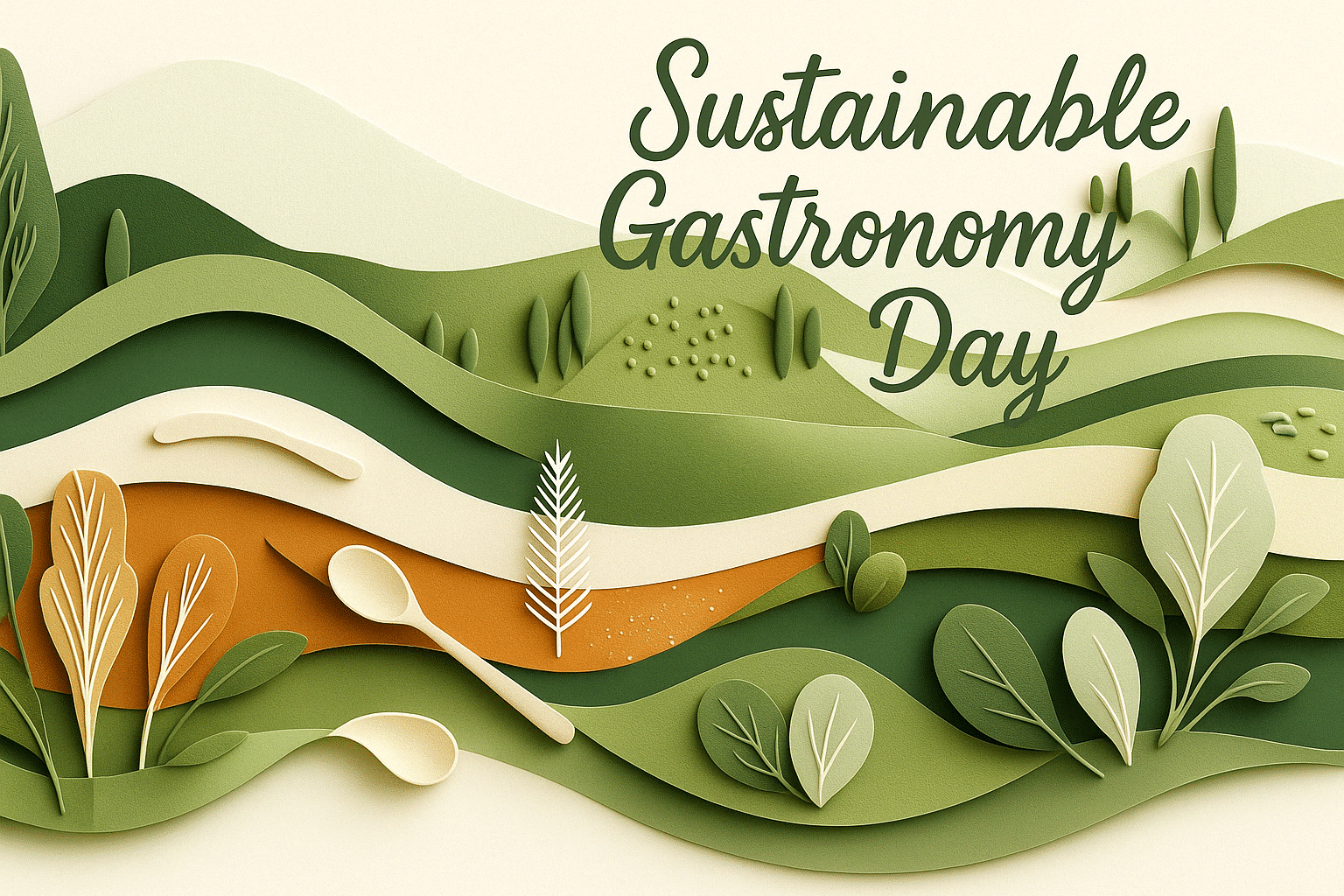What is Sustainable Gastronomy Day?
Sustainable Gastronomy Day is held every year on June 18 and is observed worldwide. The day promotes food that is both environmentally responsible and culturally respectful. It focuses on how food is grown, prepared, transported, and consumed, with an emphasis on sustainability at every stage.
This day encourages people to think about where their food comes from and how it impacts the planet. It connects chefs, farmers, scientists, and consumers through shared responsibility for soil health, water use, biodiversity, and cultural heritage.
In the Netherlands, Sustainable Gastronomy Day is supported by local food movements, farm-to-table restaurants, and environmental organisations. Public tastings, organic markets, and educational talks are common activities.
History and Origin
Sustainable Gastronomy Day was established by the United Nations in partnership with the Food and Agriculture Organization and UNESCO. The aim was to raise awareness about the role food systems play in achieving sustainable development goals.
The day was created to highlight the importance of preserving traditional cooking methods, protecting local ingredients, and promoting food practices that respect the environment. It also emphasises the links between culture, health, economy, and ecology in the context of what we eat.
Since its introduction, Sustainable Gastronomy Day has grown into a global event. Activities take place across cities, schools, restaurants, and agricultural communities that support sustainable values.
Who participates in Sustainable Gastronomy Day?
- Chefs and restaurants: Culinary professionals design special menus using seasonal, local, and responsibly sourced ingredients.
- Farmers and producers: Sustainable growers use the day to showcase eco-friendly techniques and heirloom crops.
- Schools and educators: Teachers incorporate lessons about food systems, cooking, and sustainability.
- Food activists: Individuals and groups raise awareness about food waste, ethical sourcing, and fair trade.
- Consumers: People use the day to reflect on their food choices and support sustainable businesses.
Slogans and Themes
Sustainable Gastronomy Day often uses slogans such as “Think. Eat. Save.”, “From Farm to Fork,” and “Eat Local, Act Global.” Themes include biodiversity, heritage cuisine, food security, and climate action. The messages aim to connect personal meals with planetary health. Gastronomy is celebrated not just as art, but as responsibility.
Colors, Symbols and Patterns
Colors
- Green: Represents agriculture, nature, and ecological balance.
- Brown: Symbolises soil health, tradition, and natural growing practices.
- Yellow: Evokes warmth, grains, and the energy of food cultures around the world.
Symbols
- Leaf and fork: Combines nature and gastronomy into a single emblem of sustainability.
- Globe and spoon: Reflects the global nature of the day and the need for mindful eating.
- Seedling: Represents growth, potential, and ethical beginnings.
Patterns
- Farm field lines: Visuals of cultivated land are used in posters and branding.
- Heritage textile designs: Traditional patterns evoke the connection between food and culture.
- Circular motifs: Refer to closed-loop food systems and zero waste thinking.
Most used hashtags
- #SustainableGastronomyDay
- #EatSustainably
- #FoodForTheFuture
- #FarmToFork
- #ThinkEatSave
How do you celebrate Sustainable Gastronomy Day?
- Cook with seasonal ingredients: Choose local and organic produce to reduce environmental impact.
- Support local farmers: Visit a farmers’ market or join a community-supported agriculture program.
- Reduce food waste: Plan meals mindfully and use leftovers creatively.
- Learn a traditional recipe: Explore cultural dishes that highlight balance and respect for ingredients.
- Share your plate: Post a photo and explain how your meal reflects sustainable values.
Why is Sustainable Gastronomy Day important?
Sustainable Gastronomy Day is important because food choices shape the world. Every ingredient, cooking method, and meal has an environmental footprint. This day invites people to shift from convenience to consciousness. It reminds us that how we eat affects soil, water, air, and communities.
It also honours culinary knowledge passed down through generations. Sustainable gastronomy protects food heritage while adapting it to modern ecological challenges. By celebrating this day, people reconnect with food as culture, care, and climate action.
Features
Contact Info
June 18: Sustainable Gastronomy Day
Why do you keep falling for the same type?
Read the article Lovemaps: the hidden blueprint of our love.
Did you not find what you were looking for? Let me help you find more.

